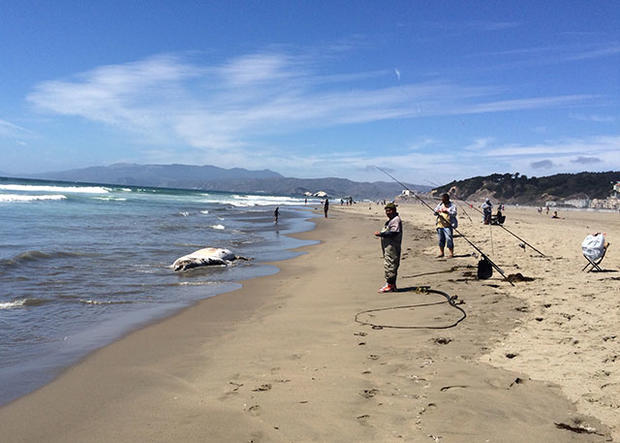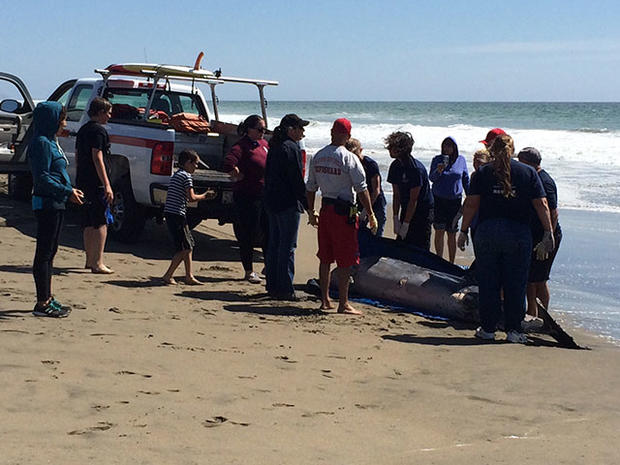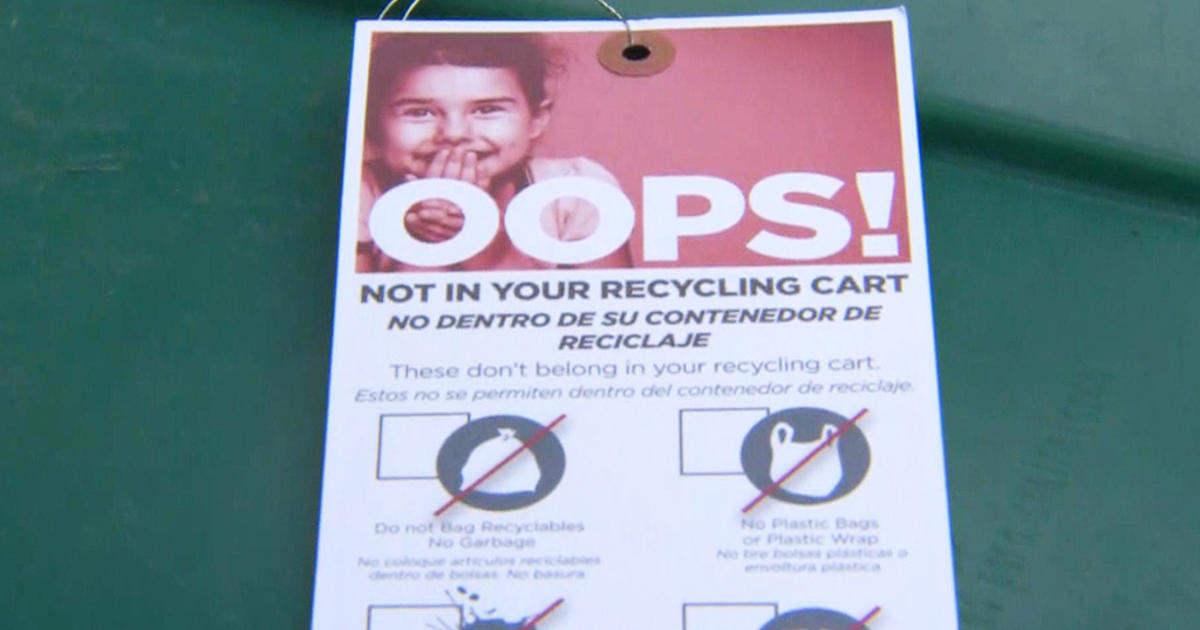Scientists Try To Determine What Killed 3 Sea Mammals Washed Ashore On SF's Ocean Beach
SAN FRANCISCO (CBS SF) -- Marine scientists are trying to figure out why several marine mammals washed ashore Ocean Beach in San Francisco, Monday.
At least one elephant seal, a sea lion, and a full-grown, male bottlenose dolphin with superficial scars were discovered. Photographs taken by passerby Joey DeRuy shows fisherman unfazed by the dolphin carcass.
Cesar Rivera and his children saw it, though. He said it was heartbreaking.
"They're beautiful animals and to see them just like, lying dead there, it touches me you know," said Rivera.
ALSO READ: Bay Area Ocean Temperatures Rising
National Parks Service rangers arrived to haul the dolphin and sea lion onto the back of a pick-up truck. The elephant seal carcass remained on the beach as of Monday evening.
Research biologist from the Marine Mammel Center said the dolphin was nine feet long, and weighed more than 700 pounds. They want to know what killed him, but said so far, there was no clear sign of death.
"We'll look at every organ. We'll try to look for signs of disease and we'll connect samples for studies," said biologist Lauren Rust. "We don't exactly know, it could be change in prey, change in water temperature. There could be a lot of factors that could change there."
Water temperatures along the coast are about five degrees above average right now, exacerbated by a large pool of warm water off the Pacific Coast dubbed "the blob."
While the rising ocean temperatures is good news for some species like sardines and albacore tuna, it's bad news for Pacific Coast salmon and steelhead which rely on cold-water nutrients and other marine animals jostled by the changing food chain.
ALSO READ: Strengthening El Nino Possibly Linked To More Shark, Exotic Fish Sightings Off California Coast
"If the warming persists for the whole summer and fall, some of the critters that do well in a colder, more productive ocean could suffer reduced growth, poor reproductive success and population declines," said Nate Mantua, leader of the landscape ecology team at NOAA's Southwest Fisheries Science Center. "This has happened to marine mammals, sea birds and Pacific salmon in the past. At the same time, species that do well in warmer conditions may experience increased growth, survival and abundance."





